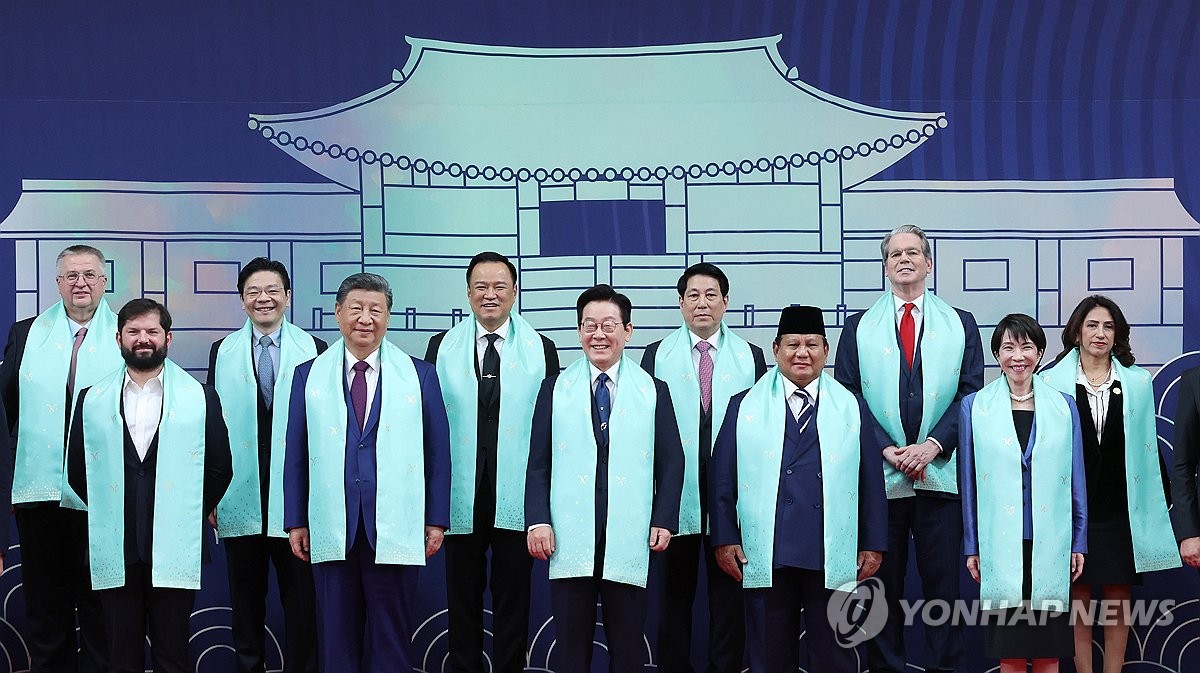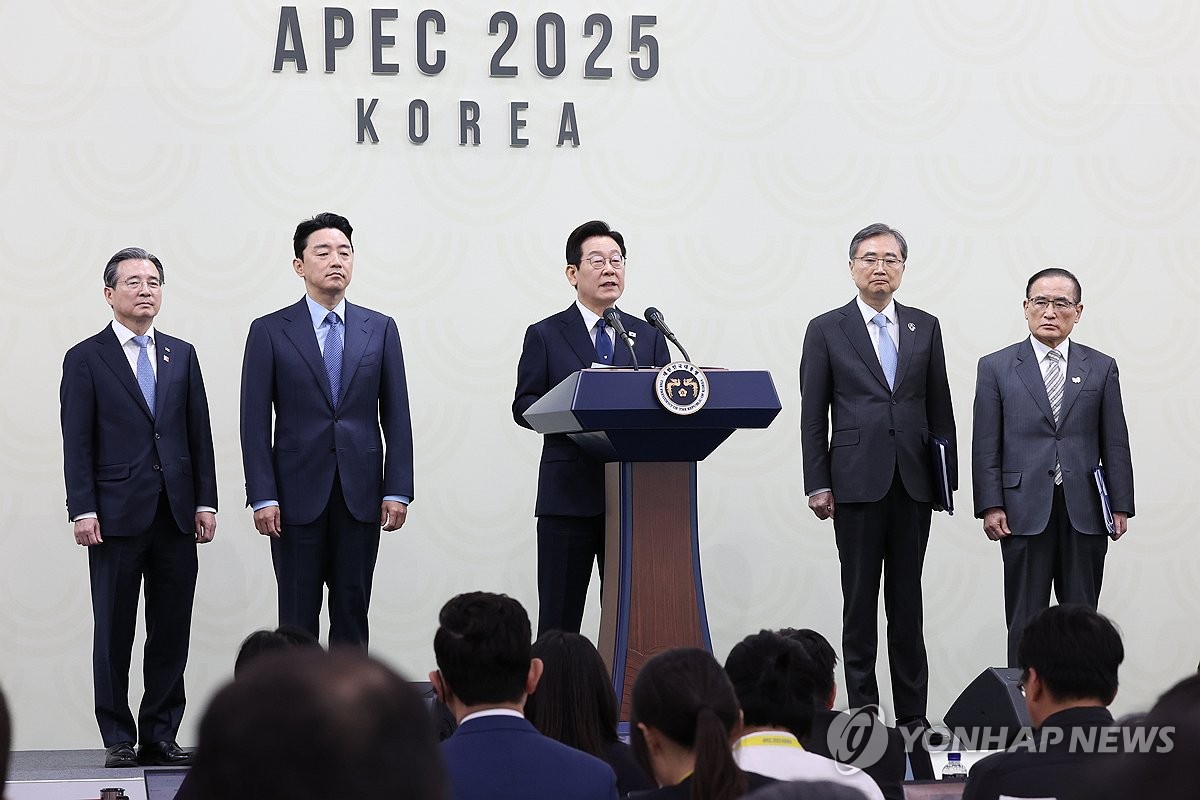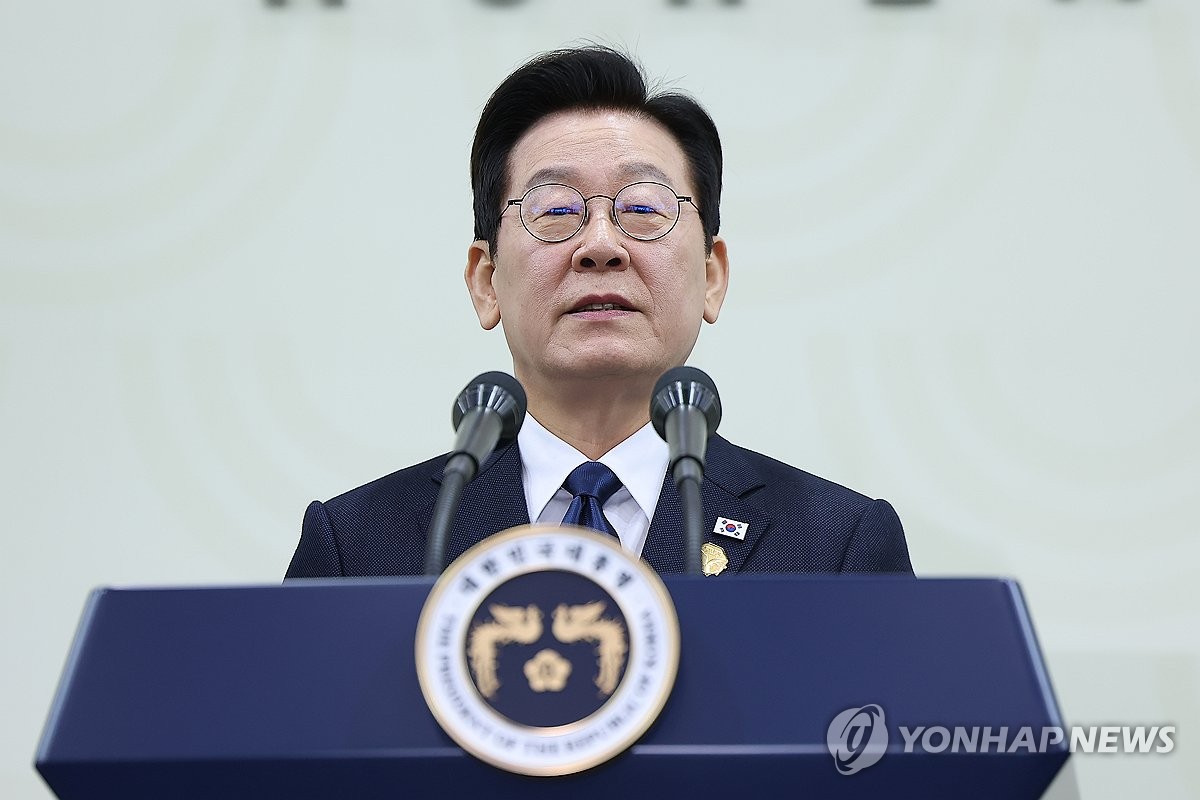The Office of the President:"K-Culture is poised to become a driving force for growth in the Asia-Pacific region."
The Gyeongju Declaration: A Foundation for Restoring the Spirit of Cooperation in the Asia-Pacific Region and Working Together for Economic Prosperity
The AI Initiative and the Population Structure Change Response Framework were also adopted.

(Gyeongju = Yonhap News) Special Reporting Team = The leaders of the 21 member countries of the Asia-Pacific Economic Cooperation (APEC) agreed on cooperation in the field of ‘cultural and creative industries’ on the 1st.
President Lee Jae-myung and other heads of state and representatives of participating countries attending the Gyeongju APEC Summit held the second session, “Retreat Meeting,” on this day and adopted the “APEC Summit Gyeongju Declaration” containing these contents.
The Gyeongju Declaration first encompasses key discussions on APEC's core issues, including trade and investment, digital and innovation, and inclusive growth, based on APEC's three key priorities for this year:"Connectivity, Innovation, and Prosperity."
It also highlighted the members' shared understanding and willingness to cooperate on artificial intelligence (AI) cooperation and responding to demographic changes.
The Office of the President evaluated the Gyeongju Declaration as significant in that it presented a direction for comprehensive cooperation among 21 members on major global economic issues, including trade, amid deepening uncertainty in the international economy.
He emphasized,"Through this, APEC members are evaluated to have restored the spirit of solidarity and cooperation and laid the foundation for working together to achieve economic prosperity in the Asia-Pacific region."
Notably, this APEC Declaration recognized the"cultural and creative industries" as a "new growth engine" for the Asia-Pacific region and explicitly stated the need for cooperation. This is the first APEC summit document to explicitly address the"cultural and creative industries."
The Office of the President explained that this is evaluated as an opportunity to establish our 'K-culture' as a growth engine in the Asia-Pacific region in the future.

The leaders also adopted the 'APEC AI Initiative' and the 'APEC Joint Framework for Responding to Demographic Changes.'
The 'AI Initiative' aims to enable all members to participate in the AI transition process and share in the benefits of AI technology advancements. The main goals are to ▲ promote economic growth through AI innovation, ▲ strengthen capabilities and spread AI benefits, and ▲ expand investment in AI infrastructure.
The Office of the President explained,"The AI Initiative is APEC's first codified joint vision for AI and the first summit-level agreement on AI involving both the United States and China," adding,"It reflects the government's basic AI policies and practical AI cooperation plans, such as 'implementing an AI basic society' and establishing an 'Asia-Pacific AI Center.'"
The 'Joint Framework for Responding to Population Structure Changes' was established based on the recognition that population structure changes, such as low birth rates and aging populations, are common challenges within the region.
The document presents policy directions and cooperation plans for five key areas: ▲ building a resilient social system, ▲ modernizing human resource development, ▲ strengthening technology-based health and care services, ▲ enhancing economic capacity for all, and ▲ promoting dialogue and cooperation within the region.
The Office of the President evaluated that"the adoption of this framework has laid the foundation for cooperation to respond to changes in employment and industrial structure for future generations and to transform demographic changes into new growth opportunities."
In this regard, the government plans to hold the 'APEC Population Policy Forum' in 2026 to continue to lead the way in strengthening regional cooperation and policy coordination in this field.

(Reporter Lee Sang-hyun)

